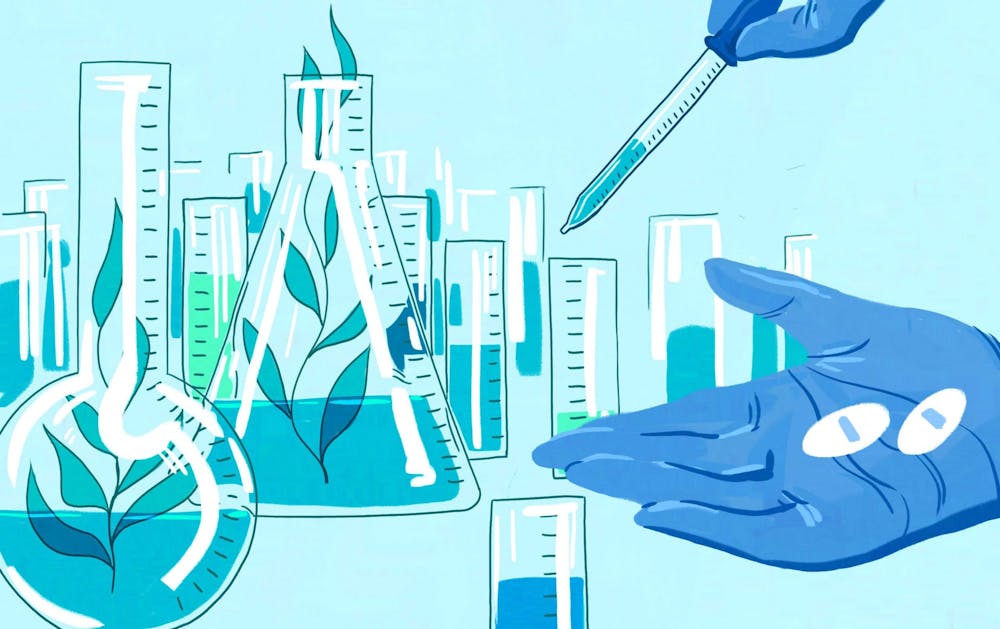Sapphire Biotech, a facet of Axim, has partnered with ASU by providing licensing technology to support research that strives to inhibit one of the enzymes that facilitates the spread of cancer in the body.
Sapphire Biotech will work with ASU by conducting preclinical studies using QSOX1 inhibitors. The studies will be done with SBI-183, one of Sapphire’s licensed technologies.
This sponsorship research agreement was facilitated by Skysong Innovations, a group that works "with ASU and other partner institutions to translate research into real-world impact."
This research is based on the efforts of Douglas Lake, an associate professor and tumor immunologist at the School of Life Sciences at ASU, as well as co-founder of Sapphire Biotech, an acquiree of Axim.
The research, which started around 10 years ago, began after Lake noticed that tumor cells were overproducing the enzyme, QSOX1.
Lake started by silencing the QSOX1 in the tumor cell by using RNA technology, which suppresses its qualities according to the National Center for Biotechnology Information.
By doing that, they discovered that the speed in which the tumor grew was much slower, which led to Lake hypothesizing that finding a way to restrain QSOX1 could also help to inhibit metastasis.
According to the National Cancer Institute, metastasis is “the spread of cancer cells from the place where they first formed to another part of the body.”
Metastasis is a dangerous part of cancer. According to the American Society of Clinical Oncology, “The 5-year survival rate for women with metastatic breast cancer is 27%. The 5-year survival rate for men with metastatic breast cancer is 22%.”
Axim Biotechnologies isn’t the first to partner with ASU for this research — Mayo Clinic has also been collaborating with Lake.
Doctors Douglas Faigel and Thai Ho at Mayo Clinic are also focused on the development of QSOX1 inhibitors for the treatment of multiple cancers including the pancreas, kidney and breast.
According to Faigel, the research and the assistance from multiple organizations stand as a testament to how important this study is and shows that such affiliations can be successful.
“This is a very good example of a really successful collaboration between more than one institution,” Faigel said.
Lake said his research is not curing cancer but wants to stress that this research seeks to understand what role QSOX1 plays in cancer, as experimental evidence suggests that QSOX1 drives tumor cells to invade into other tissues.
“Inhibitors of QSOX1 may stop metastasis which is what kills 90% of cancer patients,” Lake said.
However, because research is what leads to discoveries, Lake said it’s important for such research to receive as much funding and support as possible.
“We don’t have enough resources, the development of cancer drugs is incredibly expensive,” Lake said. “In order to push our research forward, Axim is going to help us develop more potent inhibitors for QSOX1.”
Drawing awareness to cancer and its effects is not only a priority of Lake, Ho and Faigel’s, but also Anna Wales' priority, just in a different capacity. Wales is a faculty member with the Ira A. Fulton Schools of Engineering.
In 2003, Wales started Relay for Life on the Polytechnic campus of ASU, in order to draw more awareness and inspire people to donate to research like Lake’s.
“My daughter was diagnosed with cancer when she was two years old,” Wales said. “So I became very passionate about the cause of fighting cancer.”
Wales said finding the cure to cancer won’t be discovered overnight. However, by drawing awareness to cancer in any way we can, people can collectively work toward having a greater understanding of how to combat different facets of cancer.
“Cancer does not discriminate. It is something that can affect all of us. This is a global issue,” Wales said. “And I think that’s probably the biggest thing is students need to come together to raise money for research.”
Reach the reporter at slbrinso@asu.edu or follow @Stacy_L_Anders on Twitter.
Like The State Press on Facebook and follow @statepress on Twitter.




